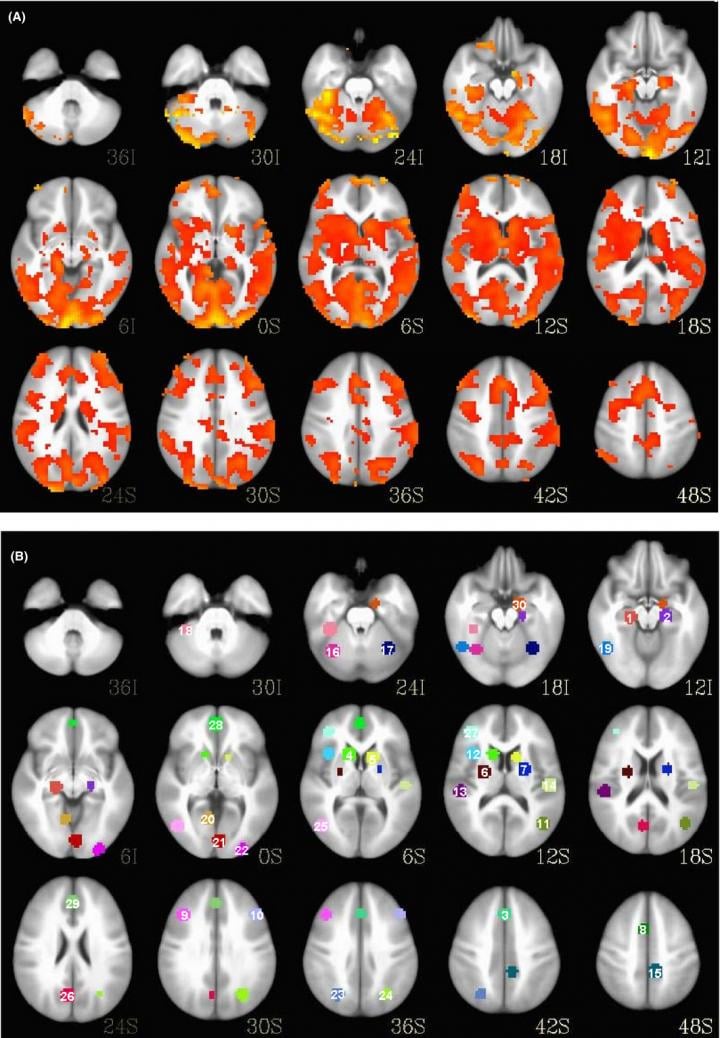Artificial Intelligence Helps Predict Medical Treatment Outcomes
Tony Pallone | June 12, 2017 Comparison of MRI brain scans of a bipolar patient (top) and a healthy patient (bottom). (Credit: David Fleck/University of Cincinnati) A new study by the University of Cincinnati opens a world of possibility for using artificial intelligence to treat disease.
Comparison of MRI brain scans of a bipolar patient (top) and a healthy patient (bottom). (Credit: David Fleck/University of Cincinnati) A new study by the University of Cincinnati opens a world of possibility for using artificial intelligence to treat disease.
Using “genetic fuzzy trees,” Prof. David Fleck at the UC College of Medicine and his colleagues were able to predict how bipolar patients would respond to lithium. The disorder affects as many as six million adults in the U.S., or 4 percent of the adult population in a given year, and is difficult to treat due to the way patients fluctuate behind periods of mania and depression.
“Treatment of bipolar disorder is as much an art as a science," Fleck said.
Moreover, the causes of mood disorders are poorly understood. "We diagnose someone with bipolar disorder. That's a description of their symptoms. But that doesn't mean everyone has the same underlying causes,” said Dr. Caleb Adler of the UC Department of Psychiatry and Behavioral Neuroscience, one of the study’s co-authors. “We don't know who is going to respond to what. If we could predict who would respond better to treatment, you would save time and consequences."
The best models thus far have been able to predict patients’ response to lithium treatment with 75 percent accuracy. The new model that the researchers developed using AI, by contrast, showed a 100 percent level of accuracy – as well as a 92 percent accuracy for predicting actual reduction in manic symptoms.
Developed by Nicholas Ernest, another co-author of the study and founder of the AI development and consultation company Psibernetix, Inc., the fuzzy logic algorithm employed by the researchers is able to sort vast possibilities to arrive at the best choices at lightning speed. It proved itself capable of outmaneuvering Air Force pilots in a series of simulations held in 2016 at Wright-Patterson Air Force Base, even when the computer’s aircraft was intentionally handicapped by slower top speed and less nimble flight characteristics.
While on the surface medicine and avionics have little in common, each entails an ordered process – a vast decision tree – to arrive at the best choices. “Fuzzy” logic compensates for uncertainty or statistical noise by relying on generalizations rather than specific definitions. Kelly Cohen, a professor in UC's College of Engineering and Applied Science who served as Ernest’s doctoral adviser, uses the analogy of a child learning to recognize a chair to better explain the way fuzzy logic works. After seeing just a few examples, any child can identify the object people sit in as a chair – regardless of shape, size or color.
Ernest’s system, Alpha, is referred to as "genetic fuzzy" because it constantly refines its answer, tossing out the lesser choices in a method not unlike the genetic processes of Darwinian natural selection.
UC researchers and Psibernetix are now working on a new study applying fuzzy logic to diagnosing and treating concussions, another difficult condition to treat.
Cohen believes that the fuzzy logic model could help personalize medicine to individual patients like never before, which has implications for making health care both safer and more affordable.
"The impact on society could be profound," he said.




